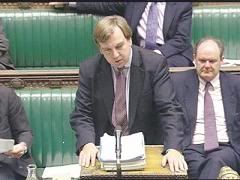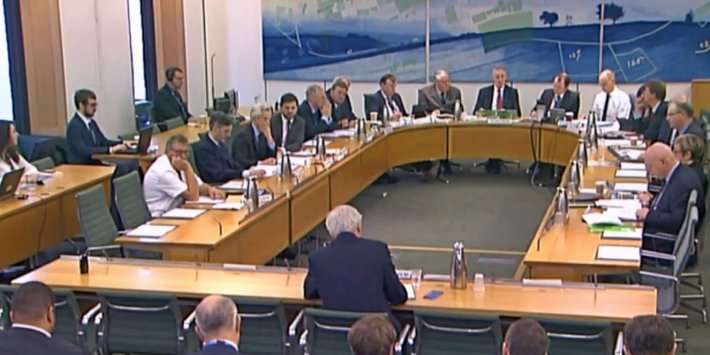 John Whittingdale responds to the Third Reading of the Gambling Bill in the House of Commons.
John Whittingdale responds to the Third Reading of the Gambling Bill in the House of Commons.
We have always made it clear right from the start that there is much in the Bill that we agree with. It contains a number of important measures that will help to introduce controls over remote gambling, for instance, and give new powers to the gambling commission. Since Second Reading there has, however, been the most extraordinary saga. The Government rightly began their preparation of the Bill by consulting widely and then subjecting the draft Bill to scrutiny. I join the Secretary of State in paying tribute to my hon. Friend the Member for Ryedale (Mr. Greenway) and his Committee for their work. There is no doubt that the scrutiny Committee improved the Bill. Indeed, the Government’s troubles started when they departed from its recommendations on regional casinos. Having done that, they appeared surprised at the chorus of opposition that they encountered. That led to not just one but two U-turns, reverses or whatever the Secretary of State chooses to call them, during the Committee stage.
The Government certainly appeared for a long time to be in a state of blind panic. What they have done has completely changed the whole thrust of the Bill, and at the very last stage of its passage. They have done so without any consultation with the industry and without any proper scrutiny. In some areas, they have turned a Bill that began life as a liberalising measure into one that will put in place a more restrictive regime than exists at present. By doing so, they have ended up satisfying almost no one. The overseas investors who were led to believe that there would be an opportunity for them in this country now feel betrayed because they will be restricted to a small number of locations. The domestic industry saw £0.5 billion wiped off its share values as a result of the Minister’s statement in the Committee. The local authorities, many of which looked on the Bill as offering potential regeneration benefits, also feel let down. Those who are concerned about the dangers of gambling addiction still feel that the Bill may allow too many regional casinos and too many category A machines.
David Winnick (Walsall, North) (Lab): The Government should listen. As there was so much criticism from both sides of the House—indeed, more criticism probably came from the Labour side—about the unlimited number of casinos, what is wrong with the Government responding to the views of Members of the House of Commons? They have taken the right turn, and I therefore support the Bill.
Mr. Whittingdale: In some areas, we welcome the fact that the Government have listened—indeed, we would have preferred them to listen rather earlier. As I said earlier, many of the problems would have been avoided if the Government had listened to the Joint Committee’s original recommendations. Obviously, we welcome the fact that on some matters, the Government have moved in the direction in which we have urged them.
The Government have now agreed to introduce a pilot scheme for regional casinos, but the proposed number of casinos is still too large. We also regret the fact that they are unwilling to introduce or maintain an identity requirement for those using casinos.
24 Jan 2005 : Column 129
On seaside arcades—a matter of great concern to many hon. Members—I welcome the commitment from the Minister for Sport and Tourism this evening to conduct a review. However, we would have liked him to make it clear at this stage that the Government will remove the clause giving the Secretary of State reserve powers to ban children from using those machines. Because of the movement by the Government, and because we support the measures to give powers to the gambling commission and to tackle remote gambling, we do not intend to vote against Third Reading.
Despite the enormous amount of preparation time, the Bill has not received proper scrutiny. It was changed dramatically on the last day in Committee, when we did not have a proper opportunity to examine those changes. Even tonight, there were five whole groups of amendments that the programme motion did not allow to be debated. I hope that those in another place will now subject the Bill to the scrutiny that it still badly needs. I accept the Secretary of State’s point that the Bill is better than when it started, but it is still flawed, and the fact that we do not propose to divide the House tonight does not mean that we do not believe that the Bill is capable of significant improvement in another place.
